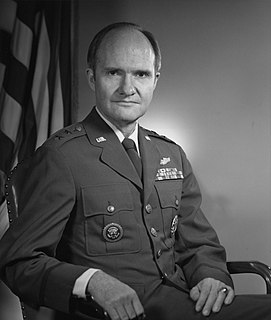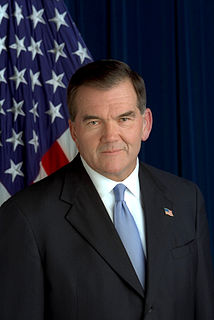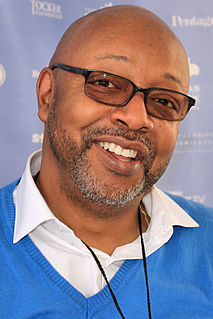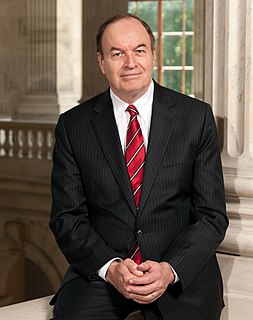A Quote by Brent Scowcroft
But the central point is that any campaign against Iraq, whatever the strategy, cost and risks, is certain to divert us for some indefinite period from our war on terrorism.
Related Quotes
The catch-all phrase "the war on terrorism", in all honesty, has no more meaning than if one wants to wage a war against "criminal gangsterism". Terrorism is a tactic. You can't have a war against a tactic. It's deliberately vague and non-definable in order to justify and permit perpetual war anywhere and under any circumstance.
It is said by Bush men and women that we fought (the Iraq War) to strike against terrorism - except that Iraq had no documented role in the Sept. 11 attacks. It is said that we fought from a moral objection to tyranny - except that we don't seem all that troubled by tyrants in nations that lack huge oil reserves. Everything is said except the truth: that we rushed into an unnecessary war on a half-baked mission. And that the repercussions of our hubris will shadow us for years.
The difference between the Bush I war against Iraq and the Bush II war against Iraq is that in the first one, we appealed to the sentiments and interests of the different groupings in the region and had them with us. In the second one, we did it on our own, on the basis of false premises, with extremely brutality and lack of political skill.
I really see the U.S. staggering under the burden of three blows. One is 9/11 and the threat of terrorism, which is still huge in Syria, Iraq, and elsewhere. The second is the failed 2003 war in Iraq, which cost so much and ruined America's credibility in the eyes of so many. Obama has repaired it to some extent, but those scars are deep. And then, thirdly, banks failed, the whole real estate market had the carpet pulled out from under it.
I opposed the war in Iraq because I did not believe it was in our national security interest, and I still don't. What we [America] did was akin to taking a baseball bat to a beehive. Our primary security threat right now is terrorism - and by doing what we did in Iraq, we've managed to alienate a good part of the world and most of the allies whose intelligence and other help we need to combat and defeat terrorism.
In fact if you look at Reagan's global war on terrorism it very quickly turned into a massive terrorist war: [by us] Central America, South Africa, the Middle East, all U.S.-backed terrorism. That's one of the reasons why it disappeared from history and why the standard line is that Bush 43 declared the war on terror. Actually he just repeated what Reagan had said 20 years earlier.




































